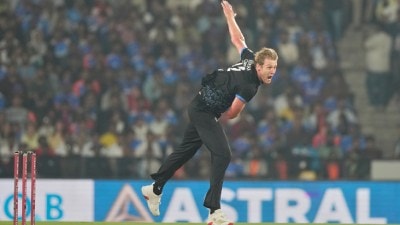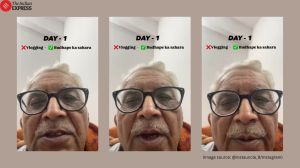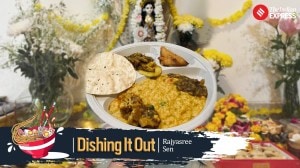In memoriam
Face to faceWhen Chand Joshi entered journalism about 30 years ago, the first thing people knew about him was his parentage. He was the yo...

Face to face
When Chand Joshi entered journalism about 30 years ago, the first thing people knew about him was his parentage. He was the younger of two sons of P.C. Joshi, the formidable general secretary of the Communist Party of India in the 1940s who had become well-known for a long ideological debate through his correspondence with Mahatma Gandhi. His mother was Kalpana Dutt, the charmingly soft-spoken academic who, as a fiery teenager, had picked up a gun to defend the armoury in her native Chittagong which her group seized under the leadership of the revolutionary Surya Sen.
It was not surprising therefore that Chand would frequently inject Regis Debray and Franz Fanon even in his city reports, and dream of a Cohn-Penditt on the Delhi University campus. For occasional sustenance of his revolutionary fervour, he would drop by C.P. Ramachandran8217;s cubicle in The Hindustan Times. Mao and Ho Chi-Minh being too distant, quot;C.P.quot; by common consent was 8220;Our Chairman8221; for many of Delhi8217;s youngradicals. Fully charged, Chand would retire to the HT union8217;s office room and radiate some of his freshly acquired ideological glow.
However, it would be wrong to think that Chand was perpetually under the shadow of his revolutionary lineage and environs. It is arguable whether he would have contributed more to journalism had his involvement in trade unionism been less. But even in his sparse writings one could discern a distinct personality emerging in tune with the realities of the world and not shackled by the cobwebs of copybook radicalism. No one understood this better than his editor who had asked him to write a column, 8220;Face to Face8221;. Chand8217;s introspection would produce ideas which were often incomprehensible even to the editor. The column was discontinued, but Chand had arrived and was dealing with the world on his own terms.
Chand was enormously talented. His sharp wit, ready repartee and fabulous articulation earned him instant admirers. But his charm was also his poison. He would be aprisoner of his own charm, and lose his way in the journey from the verbal to the written. There would be little evidence of his journalistic talent, as he did not have the skill to fully manage his talent.Convalescing at his Hauz Khas residence after a cerebral attack, P.C. Joshi would sometimes lament: 8220;Suraj and Chand will go to hell. Kalpana, you have spoilt them.8221; Kalpanadi would be calm but determined. 8220;If they go to hell, I would gladly go with them.8221;
Many of Chand8217;s friends were agreed that Kalpana Joshi had given him and Suraj more love than was good for them. Perhaps she had loved them too well, but not wisely. But the bond helped to add a dimension to Chand8217;s personality which made him universally loved. He had fully inherited P.C. Joshi8217;s sharp intellect and Kalpana Joshi8217;s fatal charm. And, Chand8217;s presence became arresting.
It is possible that at a later stage of his career Chand found himself a little disoriented. The electronic invasion of the media was on the horizon, and Chandwondered what it might mean in terms of adjustment. This caused his natural sense of restlessness to grow. He did not lose either his wit or his charm. But somewhere the increasing irrelevance of old world journalism was taking its toll. Many friends complained that Chand was indulging too much, and was wasting himself. These were at best well-meaning concerns about one who is loved. But it is also too simplistic to fathom the depths of frustration of a man who could not blame anyone for his lack of attainments. Chand did not indulge in the sense it is commonly understood.
He did not need defence; he needed understanding. From a hopeful, promising India we had voyaged to a corrupt and suffocating world. Not everybody could cope with this transition. Chand could not.
- 01
- 02
- 03
- 04
- 05






























